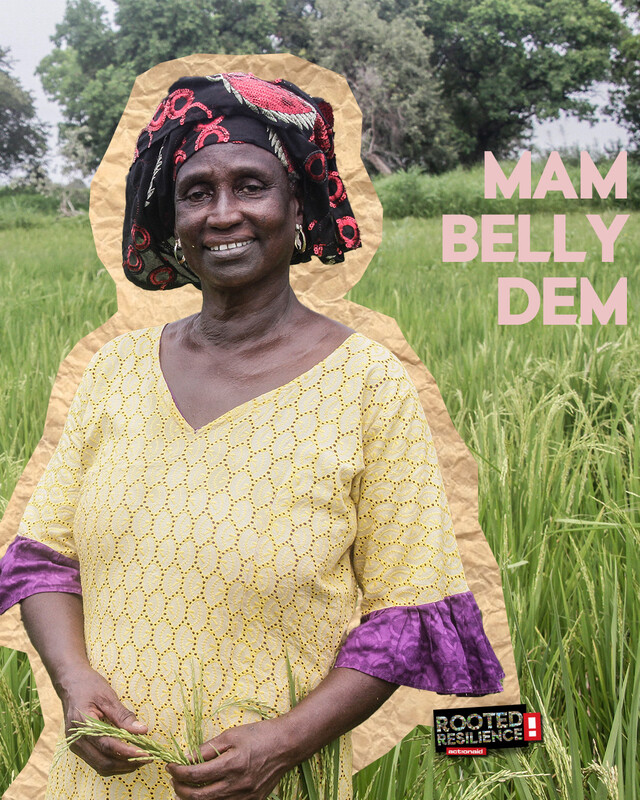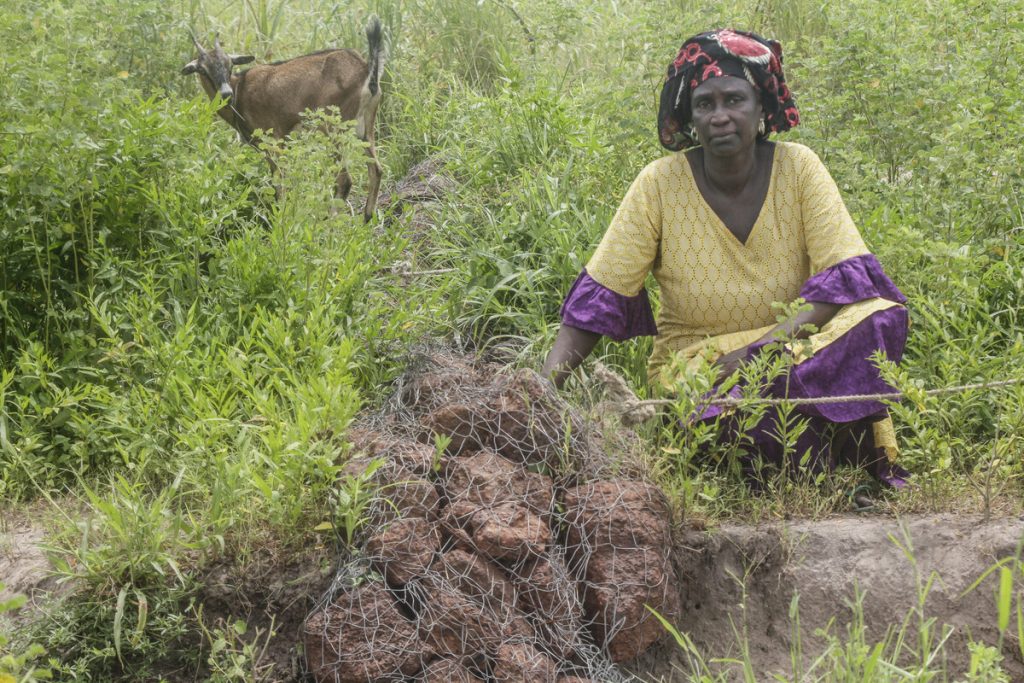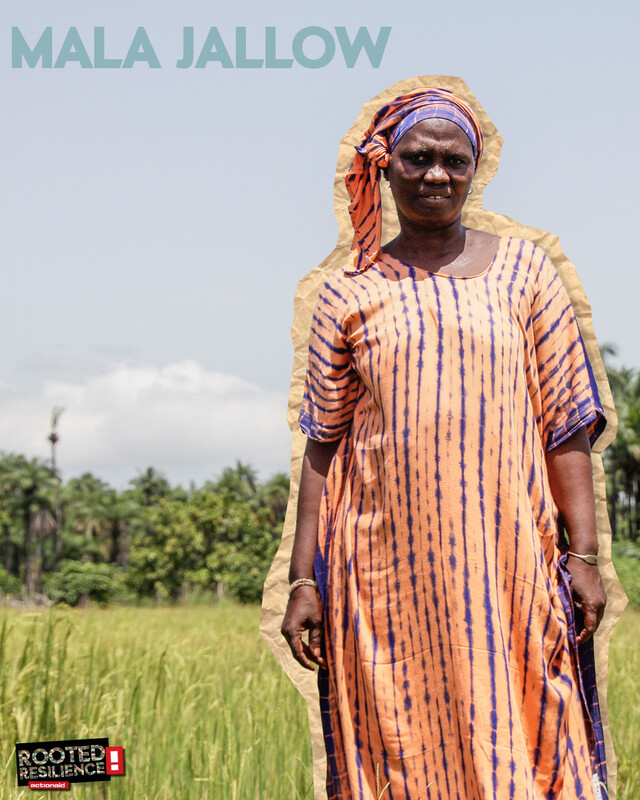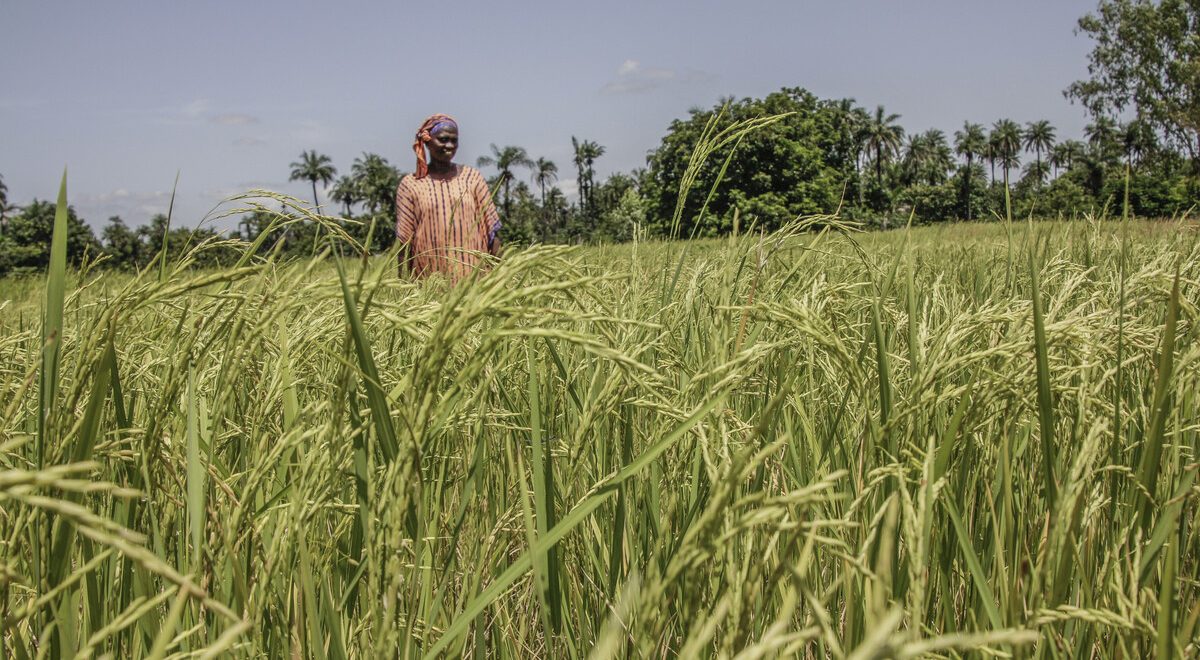Local farmers, predominantly women, contribute nearly 80% of Africa’s food production. From the essential tasks of sowing, weeding, and fertilizing to the intricate processes of product processing and transportation, these women play a pivotal role in sustaining over one billion people.
However, despite being the root of agricultural production, women often lack control over the land they cultivate. Even when national laws grant them such rights, familial and cultural norms frequently obstruct their ability to exercise this control.
Moreover, securing rights to the land is just one facet of the challenge. Access to crucial resources like water, fundamental for cultivation, is another area where women’s rights are often disregarded. Many African governments, sometimes with U.S. support, actively promote large-scale plantation-style investments across the continent. These initiatives, focused on export-oriented food and biofuel production, heavily rely on chemical fertilizers and offer only seasonal, low-paying employment opportunities for locals.
Compounding this, governments allocate land for these projects, displacing local women farmers who have been working on the land. In numerous countries, systematic denial of land rights to women farmers makes them the primary targets for forced eviction to make room for these large-scale initiatives.
While local women farmers continue to feed a substantial portion of the continent, their incredible potential as problem solvers remains constrained. Imagine the transformative impact if they were granted secure land rights and guaranteed access to local and national markets!
Women farmers in the Gambia using agroecology to secure their rights and protect their farms
Rooted Resilience, a yearlong project by ActionAid, aims to spotlight what women farmers can achieve for their communities when they have secure land rights, economic opportunities, and utilize agroecological practices in their farming.
Confronting the climate crisis, millions of farmers have embraced agroecology — a farming approach mirroring natural ecosystems for sustainable and resilient agriculture. Emphasizing biodiversity, soil health, and local resources, agroecology aims to enhance food production, reduce environmental impact, diminish reliance on costly imports, and support local communities. This first collection of stories spotlights women ActionAid leaders in the Gambia, western Africa, showcasing the potent force of agroecology.
In the Gambia, women farmers grapple not only with challenges in securing land access but also contend with erratic weather patterns disrupting farming and harvesting. The climate crisis adds layers of complexity, making their journey to resilient agriculture all the more challenging.
The relationship between women’s rights and land rights
Meet Mam Belly Dem, a Gambian farmer and community leader. Mam has participated in several campaigns and trainings organized by ActionAid. She is also a gardener and practitioner of climate resilient agriculture — an integral aspect of agroecology.

Mam shares how ActionAid helped her leverage agroecological principles in order to solve erosion issues on her farm. Through the implementation of sustainable infrastructure, called ‘gabions,’ Mam’s testimony exemplifies the transformative impact of practical solutions rooted in agroecology:
“We used to experience erosion in our communities and on our farmlands. The erosion would split our village in two with deep holes like trenches. The water would deposit sand on our farms causing siltation. The erosion divided one of my farmlands into three. I would cultivate one part of the farm, skip the other and cultivate another part. ActionAid constructed some gabions [porous metal cylinder filled with stones] for our communities. This has helped to reduce the erosion.”

Mam showing the gabion infrastructure near her farm. Photo: Mohamed L. Touray/ActionAid.
But it isn’t just soil erosion that women in her community are fighting. After years of advocating for women participation in her village’s government, Mam now holds esteemed positions as a member of both the Rural Women’s Assembly and the District Tribunal.
The tribunal serves as a local court that hears several cases in the district, including marital issues, domestic violence, violence against women, and other gender-based violence cases. Mam shares how her leadership role in the community has challenged what she grew up being told about “the proper role of a woman.” Her representation on the District Tribunal not only allows her to advocate for women’s rights but also empowers other women farmers striving for expanded access to farmland in the village.
“We used to believe that a woman’s role in a household was to cook, wash clothes and clean the house. But that perception is gradually changing. Now when you go to some villages, you will find that women own farmlands. Sometimes they own that land permanently. ActionAid taught me and other women how to stand up for our rights. It was through that awareness that I got the courage to contest for the ‘Alkaloship’ (village leadership). My family and I live a good life.”
Mala Jallow on being excluded from farmland
Echoing Mam’s sentiments, fellow women farmers in her community, including Mala Jallow, attest to the profound impact of mastering agroecological methods. Mala shared that these techniques have empowered her to optimize productivity on the limited land allocated to her as a woman farmer.

Photo: Mohamed L. Touray/ActionAid.
“Access to land in this area is always a problem. Previously, I was doing gardening and I borrowed land that was affected by salinity [high concentration of salt]. I made lots of effort to neutralize the salt by applying animal dung. After harvesting about five basins of vegetables, the following season, the owner took the land from me.
Last year, me and other women cultivated rice on a land in Nema Kunku, one of our neighbouring villages. But after we harvested our rice, we were denied access to the land.
There are many women in this area who are struggling with access to farmlands. We want to farm but we don’t have access to good fertile land. In some communities, women are given farmlands that are in the worst parts of the bush with thick shrubs.
But, we [have been able to] learn climate resilient sustainable agriculture. We were taught how to cultivate various crops on a small piece of land. Right now, access to land is a problem in this area, but we were taught that even if you have half or one hectare of land, you can cultivate up to five different crops on that piece of land.
This year, I am using this land to grow rice. The land belongs to Mademba Village. The village head allowed us to use it but it is affected by salinity and has not been germinating very well because of the salt. But as for me, I bought some bags of limestones and applied it on the land including animal dungs to reduce the salt. That is why I was able to cultivate this rice here.”
ActionAid will always support women like Mam and Mala to gain leadership positions and reclaim land in their communities. In a global landscape where small family farms sustain the livelihoods of over 2.5 billion people, amplifying the voices of these farmers becomes imperative. Agroecology, as a holistic approach to food production, isn’t just about cultivating climate-resilient crops. The social aspect is just as important, empowering local communities and women like Mama and Mala, to reclaim land and step into significant roles in decision-making processes about how to farm the land.
Stay tuned for the next installment of our Rooted Resilience series! In the meantime, explore more of our work on land rights.


